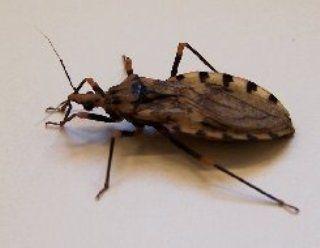Tag Archives: huffington post
Colbert: Zombies Are Intellectual Elites – ‘All They Care About Is Braiiiiiiins’
 College student eating a housemate’s heart? Homeless man eating another homeless man’s face? Porn star sending body parts to government members? “Cannibalism is the hot new trend,” observed Stephen Colbert on last night’s Colbert Report. “And you thought saggy pants were annoying.” The recent spate of these freak incidents in the news has wide swathes of the American public convinced we have a zombie apocalypse on our hands. “It does make one wonder,” Colbert said. “After all, something has clearly eaten [Fox News host] Trace Gallagher’s brain.”
College student eating a housemate’s heart? Homeless man eating another homeless man’s face? Porn star sending body parts to government members? “Cannibalism is the hot new trend,” observed Stephen Colbert on last night’s Colbert Report. “And you thought saggy pants were annoying.” The recent spate of these freak incidents in the news has wide swathes of the American public convinced we have a zombie apocalypse on our hands. “It does make one wonder,” Colbert said. “After all, something has clearly eaten [Fox News host] Trace Gallagher’s brain.”
So it came as a relief when the federal Centers for Disease control on June 1 told the Huffington Post that “CDC does not know of a virus or condition that would reanimate the dead (or one that would present zombie-like symptoms).” Colbert was not buying it, though, especially in light of a (tongue-in-cheek”) CDC “zombie awareness” campaign last year. “It makes sense that zombies would be attracted to science,” he said. “I mean, they’re intellectual elites. All they care about is braaaaaiiiiiinnnnns.”
OUR GOVERNMENT IS LYING – CDC denies rumors of zombie apocalypse
CDC denies rumors of zombie apocalypse
With reports of flesh-eating coming in from across the nation, rumors of a possible zombie outbreak are spreading on the Internet — but do you really have anything to worry about?
 Photo: Nemanja Jovanovic/AFP
Photo: Nemanja Jovanovic/AFPExperts say Chagas disease is ‘new HIV/AIDS of the Americas’
The New York Times reports experts from Baylor College of Medicine, Houston, Texas noted that nearly 8 million people have contracted the disease in the Americas and that most sufferers live in Bolivia, Mexico, Columbia and Central America. Fox News reports experts are worried that the disease that was once found mainly in Latin America is spreading to the U.S due to travel and immigration. About 30,000 people in the U.S. are believed to be infected with Chagas.
According to Daily Mail, the disease was named after a Brazilian doctor Carlos Ribeiro Justiniano Chagas, who discovered it in 1909. The disease is listed among the Neglected Parasitic Infections in the world. The list includes five other parasitic infections identified as top priority for public health action. Daily Mail reports experts say more than 10,000 people died of Chagas disease in 2008.
Chagas, like AIDS, has been linked to poverty and poor living conditions. The disease is found in the United States mostly among immigrants. Chagas disease is difficult to detect and symptoms may take several years to emerge after infection. If the infection is detected early, it can be successfully treated by an intensive course of drugs. But if detected late, the disease is difficult or impossible to cure. The New York Times reports that drugs for treating the disease are not as expensive as AIDS drugs but there are shortages in developing countries.The long period of incubation of the disease makes it difficult to detect it and the illness is often left untreated.
All blood banks in Latin America screen for traces of the disease. Daily Mail reports blood banks in the U.S. began screening in 2007.
Chagas infection is transmitted by the bite of reduviid blood suckling bugs called Triatomine bugs. The species are black wingless insects about 20 mm in length and are commonly known as “kissing bugs.”
When the bug bites its victim, it releases a single-celled parasite, called Trypanosoma cruzi into the blood stream. The parasite is closely related to the trypanosomes that cause African Sleeping Sickness. According to The New York Times, this explains why Chagas is sometimes called “American trypanosomiasis.”
The course of the disease goes through two phases, the acute and the severe stages.
The Huffington Post reports that even though there are significant similarities between Chagas and HIV/AIDS, there are also strong distinctions. HIV/AIDS is a sexually transmitted viral disease but Chagas disease is caused by a parasite called Trypanosoma cruzi. While HIV/AIDS attacks the body’s immune system, Chagas primarily targets the heart and digestive organs.
In the acute phase of illness, the disease simply incubates and may take years for symptoms to emerge. In the severe stage, symptoms such as constipation, abdominal pains, digestive disturbances and cardiac arrhythmia develop. The Huffington Post reports the National Institute of Health (NIH) says complications from Chagas disease can include inflammation of the heart, esophagus and colon, as well as irregular heartbeat and heart failure.
The parasite finally makes it way to the victim’s heart where it multiplies rapidly. Daily Mail reports that about a quarter of people who contract Chagas develop enlarged heart or intestines that may burst and cause sudden death.
According to The Huffington Post, the NIH reports that although it may “take more than 20 years from the original time of infection to develop heart or digestive problems,” the onset of symptoms can be dramatic.
Experts have long speculated that Charles Darwin contracted the illness during his five year trip on HMS Beagle when he was a young man in his 20s. Darwin died of heart failure 47 years after the voyage. He reported symptoms that experts think may be symptoms of Chagas, though others believe that some of the symptoms, such as heart palpitations, were psychogenic in origin.
Darwin, however, mentioned in his journal that he was bitten by a “wingless black bug” while traveling in South America during the voyage of HMS Beagle.
